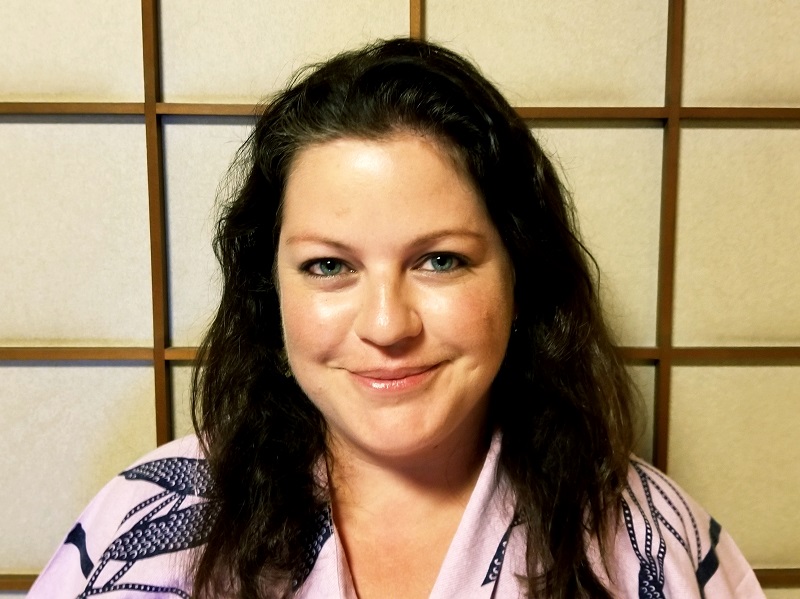PS Webinar Series: Predictable Engineering of Plants for a Sustainable Future
The urgent need to find alternatives to petroleum-based fuels and products is driven by concerns for the environment, dwindling fossil fuel reserves, and the issue of energy security.
Speakers
Event series
Content navigation
Description

Abstract -The urgent need to find alternatives to petroleum-based fuels and products is driven by concerns for the environment, dwindling fossil fuel reserves, and the issue of energy security. My research focuses on the development of non-food crops as biomass feedstocks for the production of economically-competitive, but sustainably sourced, biofuels and bioproducts.
The plant cell wall is a complex mixture of polysaccharides and phenolics that forms the majority of plant biomass. This matrix is critical for numerous aspects of plant physiology including cell-cell adhesion, plant-microbe interactions, and cell shape. Humans rely on it for building materials, dietary fiber, and for animal feed. Yet, we know surprisingly little about how it is synthesized and assembled, limiting our ability to engineer it for new functions.
Here, I will describe some of our efforts to understand and predictably engineer complex glycan synthesis, both in model systems such as Arabidopsis, and in crops such as sorghum and switchgrass. I will also discuss some of the tools we are developing to bridge the gap between phenotypes observed in the lab/greenhouse and the field.
Biography -Dr. Jenny Mortimer is a Staff Scientist at Lawrence Berkeley National Laboratory (LBNL, www.lbl.gov) in California. After completing graduate work at Cambridge University, UK on signal transduction in roots, she began studying the plant cell wall as a postdoc with Prof. Paul Dupree and the BBSRC Bioenergy Centre (BSBEC), also at Cambridge. This was followed by a fellowship at RIKEN Yokohama, Japan, hosted by Prof. Taku Demura.
At LBNL, she leads the Plant Systems Biology Group and is Deputy Vice President of the Feedstocks Division at the Department of Energy (DoE)-funded Joint BioEnergy Institute (JBEI; jbei.org). Her group (mortimerlab.org) seeks to understand how plants use the products of photosynthesis - simple sugars - to build complex biological molecules. This knowledge is being used to produce renewable, sustainable, fuels and biochemicals from plant biomass. Her lab is also developing new synthetic biology and bioinformatics tools for bioenergy crops (such as new transformation tools for sorghum as part of the DoE Plant Genomics program), and investigating the role of plant cell walls in recruiting and retaining the rhizosphere microbiome, for example as part of the DoE mCAFEs project (https://mcafes.lbl.gov/).
Dr. Mortimer is also co-leading the LBNL EcoPOD team, which is developing highly-instrumented mesocosms to bridge the scale and complexity gap between laboratory and field plant-microbe-soil research. The EcoPOD project will help researchers to test and model sustainable agriculture, and promote healthy soils. She has co-authored more than 50 peer reviewed articles. She was selected as a World Economic Forum Young Scientist in 2016 and 2017, where she contributed to the WEF Code of Ethics for Researchers (widgets.weforum.org/coe), and she is a Handling editor for Plant Cell Physiology. Find her on Twitter @Jenny_Mortimer1.
From January 2021, she will start as an Associate Professor of Plant Synthetic Biology at the University of Adelaide.
Location
When: Oct 14, 2020 12:00 PM Canberra, Melbourne, Sydney
Topic: Jenny Mortoimer's webinar
Please click the link below to join the webinar:
https://anu.zoom.us/j/84233700337?pwd=UXJraEoxN1Q2Z3plbm1nb0J2U2lydz09
Webinar ID: 842 3370 0337
Passcode: 736013
Or iPhone one-tap :
Australia: +61861193900,,84233700337#,,,,,,0#,,736013# or +61871501149,,84233700337#,,,,,,0#,,736013#
Or Telephone:
Dial(for higher quality, dial a number based on your current location):
Australia: +61 8 6119 3900 or +61 8 7150 1149 or +61 2 8015 6011 or +61 3 7018 2005 or +61 7 3185 3730
International numbers available: https://anu.zoom.us/u/kbxV7uQDnv
Or an H.323/SIP room system:
H.323: 113.197.7.23 or 113.197.7.24
Meeting ID: 842 3370 0337
Passcode: 736013
SIP: 84233700337@113.197.7.23 or 84233700337@113.197.7.24
Passcode: 736013




